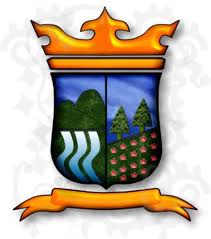
San Juan, PR – Dozens of foreigners, including many from the United States and Canada, are stranded in Haiti, desperately trying to leave the violence-torn country, where anti-government gangs are battling police and have already closed both of the country’s international airports.
They were in Haiti for reasons ranging from adoptions to missionary and humanitarian work. Now, they are holed up in hotels and homes, unable to leave by air, sea, or land as Haiti remains paralyzed by chaos and gang demands that Prime Minister Ariel Henry resign.
“We are seriously trapped,” said Richard Phillips, a 65-year-old from Ottawa, the Canadian capital. Phillips has traveled to Haiti more than three dozen times to work on projects for the U.N., USAID, and now, a Haitian nonprofit called Papyrus.
After arriving in Haiti in late February, Phillips flew to the southern coastal city of Les Cayes to teach farmers and others how to operate and repair tractors, cultivators, planters, and other machinery in an area known for its corn, rice, peas, and beans.
Once his work was done, Phillips flew to Port-au-Prince, only to discover that his flight had been canceled. He stayed at a nearby hotel, but the gunfire was relentless, so he moved to a safer area.
“We’re actually quite worried about where this is going to go,” he told The Associated Press by phone. “If the police force collapses, there will be anarchy in the streets and we could be here for a month or more.”
Dozens of people have been killed in gang attacks that began Feb. 29, and more than 15,000 people have been left homeless by the violence.
Earlier this week, Haiti’s government extended a state of emergency and a nighttime curfew to try to quell the violence, but the attacks continue.
Gangs burned police stations, freed more than 4,000 inmates from Haiti’s two largest prisons, and attacked Port-au-Prince’s main airport, which remains closed. As a result, the prime minister has been unable to return home from a trip to Kenya to push for the deployment of a U.N.-backed police force from the East African country.
Phillips said he had exhausted all options to leave Haiti by air, noting that a helicopter operator could not get insurance for such a flight and that a private plane pilot said that approach would be too risky. As for trying to walk to the neighboring Dominican Republic, “We may be able to walk miles and miles to get to a border, but I’m sure that’s dangerous, too.”
Despite being stuck, Phillips said he remains calm.
“I’ve been shot at many times in Haiti and I have bullet holes in my truck,” he said. “Personally, I’m a little used to it. But I’m sure for other people it’s pretty traumatic.”
Yvonne Trimble, who has lived in Haiti for over 40 years, is among the U.S. expatriates who can’t leave.
She and her husband are in the northern coastal city of Cap-Haitien, waiting for a private evacuation flight for missionaries that had already been canceled once.
“We are completely blocked,” she said by phone. “This is the worst I’ve ever seen. It’s total anarchy.”
Trimble watched as a mob recently surrounded the Cape Haitian airport and began throwing rocks and bottles after a rumor that the prime minister was landing.
She and her husband are scheduled to fly next week courtesy of Florida-based Missionary Flights International.
The company’s vice president of administration, Roger Sands, said Missionary Flights International had received as many as 40 calls from people expecting to leave or remain on standby.
“We get phone calls constantly,” he said. “The big concern is that every time people see a plane, they think the prime minister is coming back to the country, and there’s a large segment of society that doesn’t want that to happen. That’s why we don’t want to be the first ones in.”
It is unclear when Haiti’s two international airports will reopen.
“This is difficult for us,” Sands said. “We hate to see our planes on the ground when it’s necessary.”
A missionary couple who declined to provide their names for security reasons said they have lived in Haiti for several years but will not leave because they are adopting a 6-year-old boy.
“There is no decision to be made. We are here as a family,” the woman said.
Meanwhile, her husband was supposed to fly to the U.S. last week for medical care, as he has type 1 diabetes and has developed neuropathy that causes severe pain in his legs and back and muscle atrophy in his legs, making movement difficult.
For now, the four appointments he made are on hold.
“It’s a little frustrating,” he said.
Neither can Matt Prichard, a 35-year-old from Lebanon, Ohio, and his family leave. Prichard, a missionary operations manager, has two children (an infant and a toddler) with his Haitian wife, plus an 18-year-old son.
The rest of his family has not yet been able to get documents to enter the United States, so they will all stay in southern Haiti for now.
“Unfortunately we seem to be stuck,” she said.
Prichard noted that the situation stresses her son and tells her she should leave because “this is not a good place for you. Just get out of here.
But Prichard said, “As a parent, you can’t leave your kids or your family.”
He said the local grocery store has almost run out of essential commodities, and it has been difficult to find gasoline.
“The expatriate community here is really our comfort,” he said. “It’s that connection, those relationships, that really get us through.”






